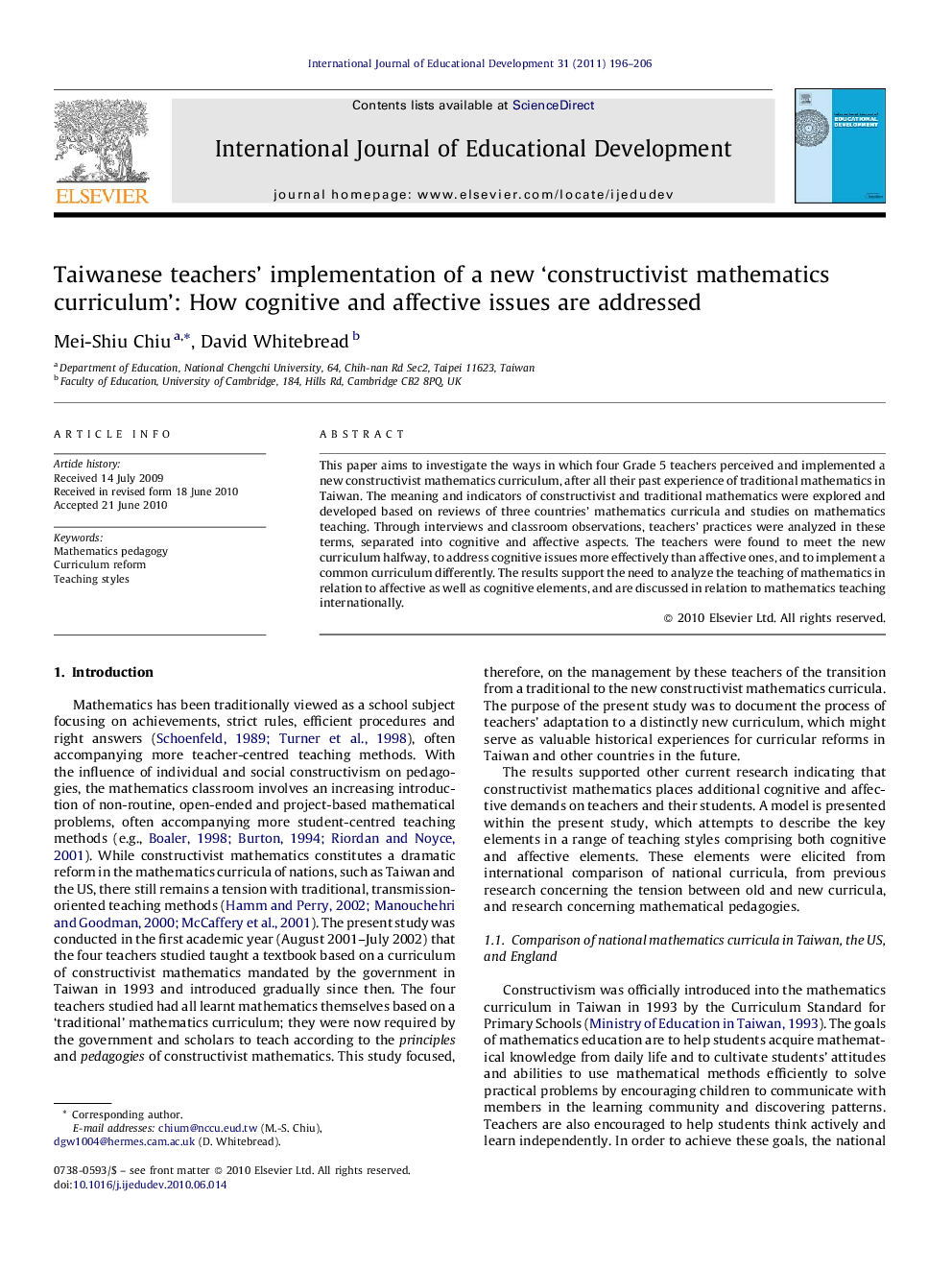| Article ID | Journal | Published Year | Pages | File Type |
|---|---|---|---|---|
| 356194 | International Journal of Educational Development | 2011 | 11 Pages |
This paper aims to investigate the ways in which four Grade 5 teachers perceived and implemented a new constructivist mathematics curriculum, after all their past experience of traditional mathematics in Taiwan. The meaning and indicators of constructivist and traditional mathematics were explored and developed based on reviews of three countries’ mathematics curricula and studies on mathematics teaching. Through interviews and classroom observations, teachers’ practices were analyzed in these terms, separated into cognitive and affective aspects. The teachers were found to meet the new curriculum halfway, to address cognitive issues more effectively than affective ones, and to implement a common curriculum differently. The results support the need to analyze the teaching of mathematics in relation to affective as well as cognitive elements, and are discussed in relation to mathematics teaching internationally.
